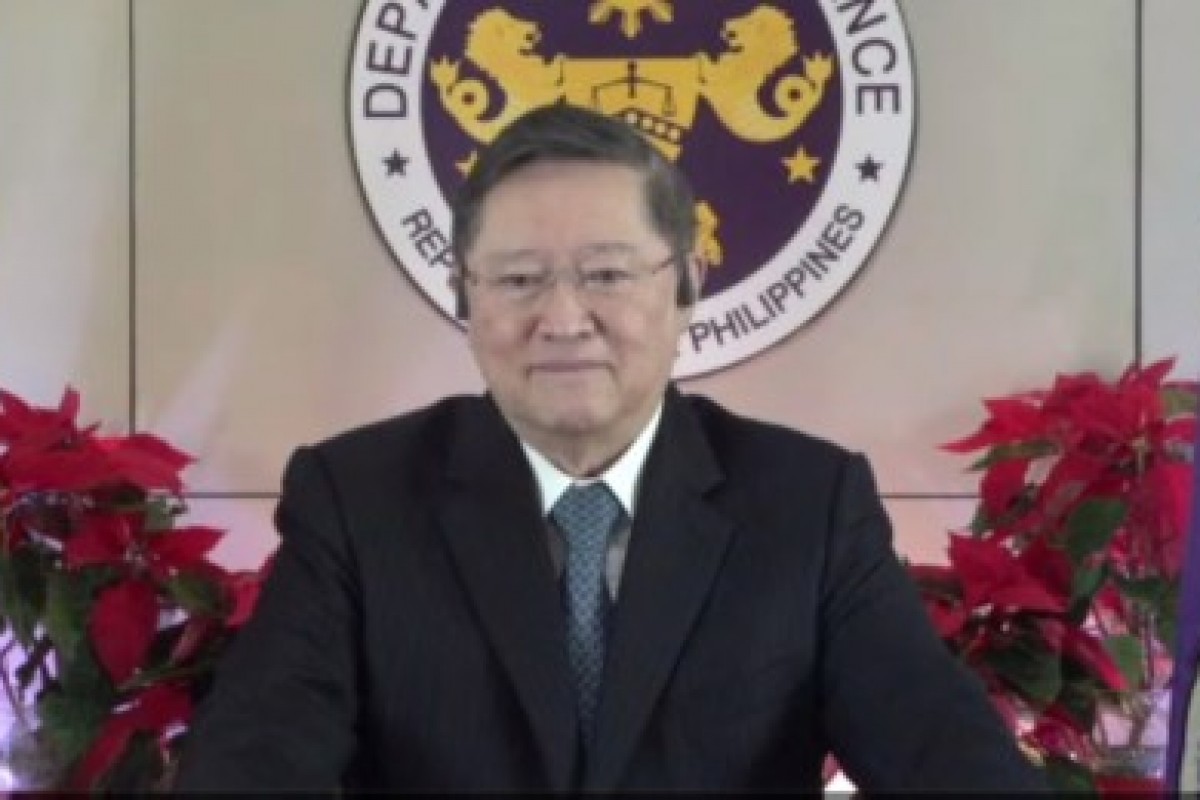GLASGOW -- The Philippines has called for an end to the debate on climate change, and for nations to start implementing concrete actions to fulfill their respective commitments and “obligations to humanity” to save the planet from an environmental catastrophe.
“The Philippines is determined to be a world leader in this fight against climate change,” Finance Secretary Carlos Dominguez III told fellow leaders at the 26th United Nations (UN) Climate Change Conference of the Parties (COP26), which is being held here.
“We are moving ahead with urgency to fulfill our ambitious target. We shifted from theorizing about climate change to executing practical climate adaptation and mitigation projects on the ground. We have put together a group of Filipino experts who represent all corners of the Philippines to engage our fishermen and farmers to prepare them to execute localized action plans,” Secretary Dominguez said.
Secretary Dominguez said the commitments that nations have to flesh out include building a framework for climate justice to ensure that countries that have “polluted and continue to pollute the Earth's environment through unthinking industrialization starting 200 years ago (must) pay for the grants, investments, and subsidies needed for the most vulnerable countries to adapt to climate change.”
Developed countries have fallen short on their commitment formalized at the 16th COP meeting to mobilize US$100 billion per year by 2020 to assist developing countries in fighting climate change.
“We have very high expectations for this COP26 meeting to become not just merely an annual platform for discussion but a catalyst for concrete action plans. It’s time that we do some actual work on the ground and build a framework for climate justice,” Secretary Dominguez said in delivering the Philippines’ country statement at COP26.
Secretary Dominguez, who is Chairman-designate of the country’s Climate Change Commission (CCC), heads the Philippine delegation to the two-week COP26.
“The time for debate is over. This is the time to finally begin acting on the fulfillment of our commitments and obligations to humanity,” Secretary Dominguez said.
On the part of the Philippines, Secretary Dominguez said it has begun implementing concrete actions to demonstrate to the world how a developing and climate-vulnerable country can lead in the fight to save the planet.
“This also shows that our commitments are not merely empty or half-baked promises, but are supported by actionable projects on the ground,” Secretary Dominguez said.
As its Nationally Determined Contribution (NDC) to the Paris Agreement, the Philippines has set a bold and ambitious commitment of projected greenhouse gas emission reduction and avoidance of 75 percent from 2020 to 2030 for the agriculture, wastes, industry, transport, and energy sectors.
Among the concrete actions that the Philippines has initiated to fight climate change are: (1) its first-ever Sustainable Finance Roadmap to deploy the engines of finance to get green projects moving across the country, and (2) pushing a law banning single-use plastics so that Filipinos can do their part every day in saving the world’s environment, Secretary Dominguez said.
Another initiative, he said, is the Philippines’ partnership with the Asian Development Bank (ADB) on a landmark Energy Transition Mechanism (ETM) project that will accelerate the retirement of coal-fired plants in the country and the transition to clean energy, which came after President Duterte declared a moratorium on new coal plants.
To move ahead with urgency in fulfilling its ambitious NDC target and implementing practical climate adaptation and mitigation projects on the ground, Secretary Dominguez said the Philippines’ CCC had put together a group of Filipino experts who represent all corners of the archipelago to engage fishers and farmers and prepare them in executing localized action plans.
Secretary Dominguez pointed out that while the Philippines accounts for only 0.3 percent of the world’s total greenhouse gas (GHG) emissions, it bears the brunt of the consequences of climate change.
“Our country is sinking four times faster than the global average. Annually, we are confronted with extreme floods and droughts as well as increasing severity and frequency of typhoons. Millions of lives are at stake. Clearly, climate change is very real to the Philippines,” he said. (DOF)



